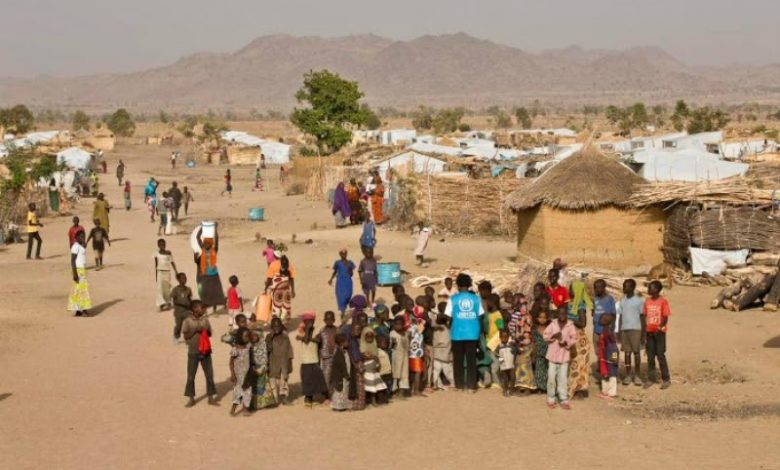Angry Refugees Attack Cameroon, Nigeria, UNHCR Delegations In Cameroon
Refugees in Far North region of Cameroon have attacked delegations from Nigeria, Cameroon and the UNCHR for not bringing relief materials to them during a visit.

Cameroonian, Nigerian and United Nations High Commission for Refugees (UNHCR) delegations that went to the Minawoa refugee camp situated in Mokolo subdivision of the Mayo-Sanaga division in the Far North region of Cameroon, to discuss the modalities for the repatriation of 5,000 Nigerian refugees to their country were Wednesday, Feb.10, attacked by the irate refugees.
According to an official of the UNHCR who elected for anonymity because he is not the official spokesperson of the UN Agency, the delegations were led by Paul Atanga Nji, the Territorial Administration Minister, for Cameroon, Babagana Zulum, the Governor of Borno State, for Nigeria and Olivier Guillaume Beer for the UNHCR.
HumAngle reported that the Borno State Government in northeastern Nigeria had on Wednesday announced plans to repatriate about 9,800 refugees from the state sheltering in Cameroon due to Boko Haram insurgency.
Isa Gusau, the media aide to the state governor, said in a statement seen by HumAngle that plans were ongoing to take back the Borno-refugees. They fled their hometown in the wake of recurrent attacks from Boko Haram insurgents.
But the delegations that visited the refugees on Wednesday, according to sources at their camp in the Far North Region of Cameroon were attacked by the refugees for not bringing relief materials as they have been expecting.
“Immediately the members of the tripartite commission arrived at Minawoa camp in the afternoon of February 10, 2021, they were assaulted by leaders of the refugee community who had expected them to come loaded with relief materials including foodstuff and money as has always been the case,” UNHCR official told HumAngle.
“When the refugees realised that the delegations had come barehanded, they took on them.”
“The windscreen of the vehicle belonging to a non-governmental organisation known as Inter SOS was shattered on the passenger side of the car. But for the intervention of the security detail, the worst should have happened to us.”
A humanitarian worker told HumAngle raised the alarm that the refugees were fast becoming aggressive in the camp, citing incidences of violent clashes among them in recent times.
“There is a sort of vandalism psychosis developing within the refugee community in the Minawoa camp to the point where little disagreements always end in violence involving the use of knives. We are sitting on a powder keg that can explode at any time,” he said.
“Security forces and humanitarian workers are booed, jeered and attacked almost on a daily basis by refugees who complain of inhumane treatment in the camp.”
“The refugees revolted because they thought their Governor of Borno State and the Cameroonian Minister of Territorial Administration had come to give them some means of subsistence as has always been the case in the past but they were taken aback when they discovered the two government officials came empty-handed,” the source added.
“The Nigerian refugee camp has become a real powder keg and the refugees therein have become uncontrollable, rebellious, stubborn and difficult to understand.”
According to the UNHCR, over 3.4 million people have been displaced, including over 2.7 million internally displaced persons (IDPs) in Northeastern Nigeria, over 684,000 IDPs in Cameroon, Chad and Niger and 294,000 refugees in the four countries.
In 2015, leaders of the four countries met in Abuja, Nigeria’s capital to form the Multinational Joint Task Force (MNJTF) to stem the tide of violent attacks.
They have since been in collaboration to tackle the humanitarian crisis, threatening to destabilise the Sahel region.
Support Our Journalism
There are millions of ordinary people affected by conflict in Africa whose stories are missing in the mainstream media. HumAngle is determined to tell those challenging and under-reported stories, hoping that the people impacted by these conflicts will find the safety and security they deserve.
To ensure that we continue to provide public service coverage, we have a small favour to ask you. We want you to be part of our journalistic endeavour by contributing a token to us.
Your donation will further promote a robust, free, and independent media.
Donate HereStay Closer To The Stories That Matter




